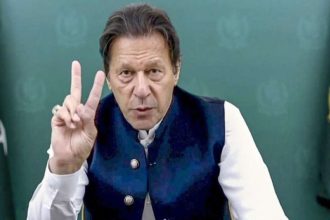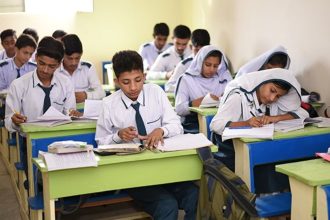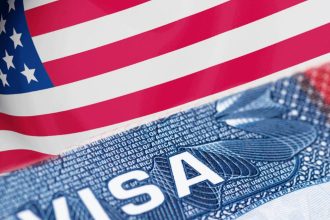Prime Minister Nawaz Sharif and his Indian counterpart Narendra Modi held an hour-long secret meeting on the sidelines of the Saarc summit in Kathmandu last year, a new book claimed on Tuesday.
Away from prying eyes and more than just a mere handshake, the two leaders are said to have met secretly in a meeting that was facilitated by Indian steel magnate Sajjan Jindal, the brother of former Congress MP Naveen Jindal, according to The Hindustan Times.
The revelations have been made by renowned TV journalist Barkha Dutt in her debut book This Unquiet Land — Stories from India’s Fault Lines which is set to be published on Wednesday.
Unknown to the media and certainly the public, both Modi and Sharif had found someone to “keep them connected even when things got difficult”, Dutt writes, describing Sajjan Jindal as an informal messenger serving as a “covert bridge” between the two leaders.
Both the leaders shared their constraints while agreeing they needed more time and greater political space to move forward with public engagements, the paper said.
Indian Ministry of External Affairs spokesperson Vikas Swarup and Jindal were not available for comment on this.
During their first meeting when Nawaz visited Delhi for Modi’s swearing-in cermeony the two premiers decided to keep the reins of the relationship in their hands, The Hindustan Times further said quoting Dutt.
“However, they agreed that it could be useful to talk informally through a mutual acquaintance they both felt comfortable with.”
The acquaintance was Jindal, who hosted a tea party for Nawaz after his meeting with Modi in New Delhi. When Dutt went to meet PM Nawaz at the Capital’s Taj Mansingh hotel, she saw Jindal escort his son Hussain for lunch.
“It was no secret that Indian steelmakers, both state and private players, were looking to foster friendly relations with Pakistan; they needed this to happen so they could ferry iron ore from Afghanistan by road across Pakistan from where it could be shipped to ports in western and southern India,” Dutt writes.
“But, Jindal’s ties with Sharif, she says, appeared to have gone beyond that of a businessman with the head of a government – and the two had become ‘confidantes’,” the paper adds.
The proximity was at play in Kathmandu, where the Saarc summit was held on November 26 and November 27. Modi called up Jindal from Nepal and asked him to take the earliest flight to the Nepali capital.
“Jindal was asked to discreetly reach out to his ‘friend’ across the border,” the TV journalist writes. The two leaders then met quietly “in the privacy of Jindal’s hotel room”, where they spent an hour together.
The paper adds that Modi spoke about “circumstances” which did not permit him to reopen formal channels. While PM Nawaz spoke about “constrictions” imposed on him by the security establishment and how his “negotiating power with the army had been gradually whittled away”.
“This under-the radar encounter paved the way for Modi to openly reach out to Sharif two months later through a phone call that was positioned as an innocuous good-luck call for the World Cup,” Dutt writes.
Dutt’s own assessment of Jindal’s role is that it did not involve negotiating “tricky matters of geo-politics”.
“He was more like a covert bridge that connected them if either wanted to reach out to the other side sans protocol or publicity.” And, because Jindal’s role was off the record, it came with plausible deniability, she added.
This article originally appeared on The Hindustan Times.





